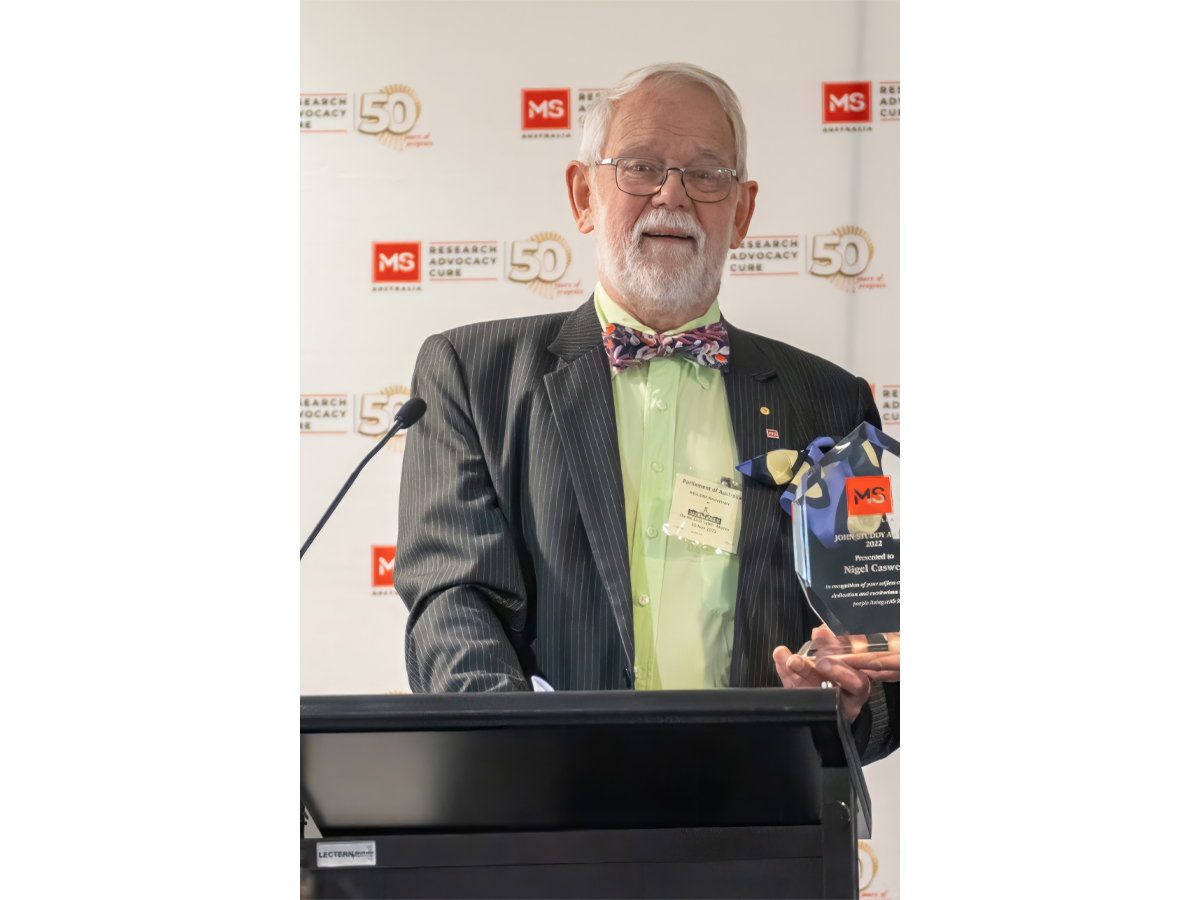The first adaptive clinical trial for Australians with progressive MS designed to reverse neurological damage will be launched in 2024. The trial will allow researchers to investigate the potential benefits of several medications simultaneously giving hope to the cohort of people living with one of the most debilitating forms of MS who have limited treatment options.
Progressive MS is a clinical form of MS characterised by a worsening of symptoms and disability without periods of recovery. This complex autoimmune and neurodegenerative condition manifests differently in individuals over time, but without treatment, disability steadily accumulates.
Working with a national and international group of clinicians and researchers, the multi-arm, multi-stage (MAMS) adaptive, innovative design, known as PLATYPUS, will test two repurposed drugs alongside each other, providing more timely results about whether treatments are working.
MSWA CEO Melanie Kiely, a leading funder of the trial, said the research project will transform the way treatments for progressive MS is tested. “PLATYPUS has the potential to deliver a significant breakthrough, and by testing two repurposed drugs, we hope to find a treatment which can be quick to market,” she said.
MS Australia CEO, Rohan Greenland, said despite traditional clinical trials for progressive MS in Australia, there is no treatment that repairs damage. “With an estimated 13,000 people living with progressive MS, the launch of PLATYPUS is a major milestone, that will ensure a treatment opportunity for people with progressive MS, the greatest unmet need in the MS landscape,” he said.
Neurology Professor Simon Broadley from Griffith University’s School of Medicine and Dentistry and chief investigator of PLATYPUS, said the trials will allow the testing of multiple potential therapies simultaneously, bringing results much faster than traditional clinical trial methods.
“Collaborating with our OCTOPUS partners in the UK, we will be trialling the drugs metformin, which is typically used to treat type 2 diabetes, and alpha-lipoic acid which is a health food supplement, therapies that have shown promise in promoting neuroprotection and/or myelin repair in MS.”
The PLATYPUS trial will be rolled out across Australia through a collaboration of 20 academic and healthcare institutions and aims to recruit more than 250 participants in Australia. These multi-arm, multi-stage trials require less time and fewer participants to assess the efficacy and cost-effectiveness of metformin and alpha-lipoic acid, Broadley said.
Nigel Caswell, who was diagnosed with MS in 1993, said the launch of PLATYPUS today provides extraordinary hope for many people living with MS and “is a major moment for MS research”.
Photo: Nigel Caswell

